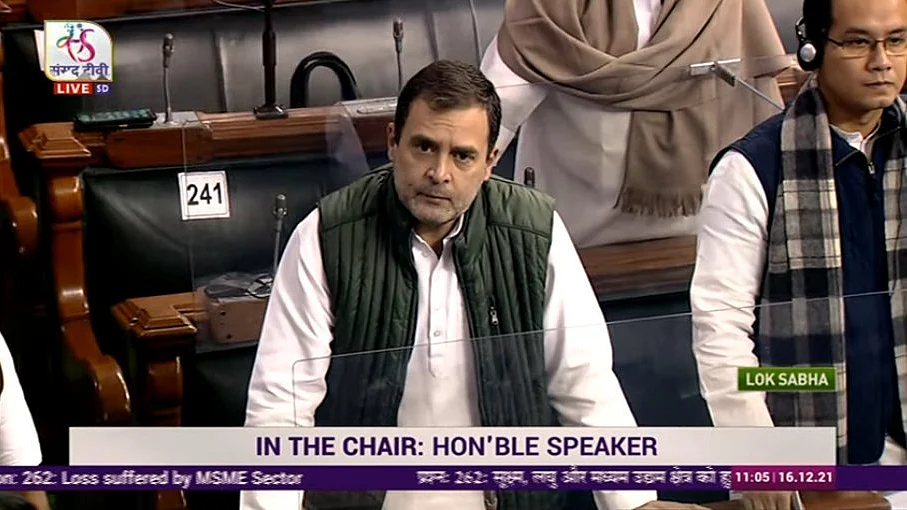Herald View: Scrubbing the Taint That Won’t Go Away
The late decision to expunge the references is extraordinary because there is no way the House can entirely delete reports and references from the media or public record

What purpose, if anything, did expunging large portions of Rahul Gandhi’s speech in the Lok Sabha serve? Scrubbing out all references he made to industrialist Gautam Adani and his cosy relationship with Prime Minister Modi from the minutes of the House proceedings will hardly scrub it out of the public domain, or indeed public memory. In that sense, the question may appear to be of academic interest, but it does have a bearing on the future of parliamentary practice. The political purpose it may have served was to free the Prime Minister of the obligation to counter the charges in the House. His party and his future biographers can claim that since the references were all expunged, the Prime Minister was not obliged to answer the questions addressed to him. The Speaker’s decision to expunge such large chunks of an MP’s speech may well be unprecedented and will prevent historians and researchers from getting a full sense of the proceedings of the House on the day. His decision was remarkable also because the speech was telecast live, for once not censored in the House in real time; the recordings were widely shared. Indeed, the Speaker or the Lok Sabha secretariat, usually quick to point out unparliamentary references and expunging them on the spot, did no such thing. The Congress MP was allowed to speak, amid some heckling, no doubt, from the treasury benches, but no interruption from the chair. The late decision to expunge the references, some accounts describing it as a midnight call, is also extraordinary because there is no way the House can entirely delete reports and references from the media or public record.
The reason cited for expunging the portions is also remarkable. The allegations were apparently expunged because they were not ‘authenticated’. This is remarkable on several counts. It is, first, the job of the government to conduct investigations and inform the House. Corruption charges are seldom ‘authenticated’ by the Opposition, because they do not have the powers to press the investigating agencies into service. The government has those powers, and the onus is on the government to refute the charges to the satisfaction of the House.
The allegations of stock manipulation and the use of shell companies in Mauritius, to launder money through round-tripping, are in the public domain. They have been reported widely in both national and international media. Prime Minister Modi, on his part, has never tried to hide his special relationship with Gautam Adani and his business empire. It is common knowledge and the Financial Times of London, in a widely circulated and much-talked-about report, referred to Adani as ‘Modi’s Rockefeller’. In a poor country where politicians tend to be discreet about their relationship with the wealthy, Mr. Modi has chosen to flaunt his friendship with his wealthy friend. One is tempted to ask the Speaker to elaborate on what remains to be authenticated.
In his reply in the Lok Sabha the very next day, the Prime Minister did not utter the ‘A’ word even once; and without bothering to ‘authenticate’ anything he said, went on to lash out at the previous government for what he claimed was a ‘lost decade’ between 2004 and 2014. His silence on the raging controversy surrounding the Adani Group was quite eloquent, and gave a fair indication of how his government may stonewall Opposition demands for an enquiry into the allegations. Neither Prime Minister Modi nor his Bharatiya Janata Party have shied away from making ‘wild allegations’ in the House against the UPA government and then Prime Minister Dr. Manmohan Singh. Quite another matter that those alleged ‘scams’ were later found to be a desperate bid to make a mountain of a molehill.
For readers who want their memories jogged on how the Adani Group came to dominate sectors as diverse as mining, energy, airports, ports and defence, we have a refresher on the front page of this edition.
Follow us on: Facebook, Twitter, Google News, Instagram
Join our official telegram channel (@nationalherald) and stay updated with the latest headlines
